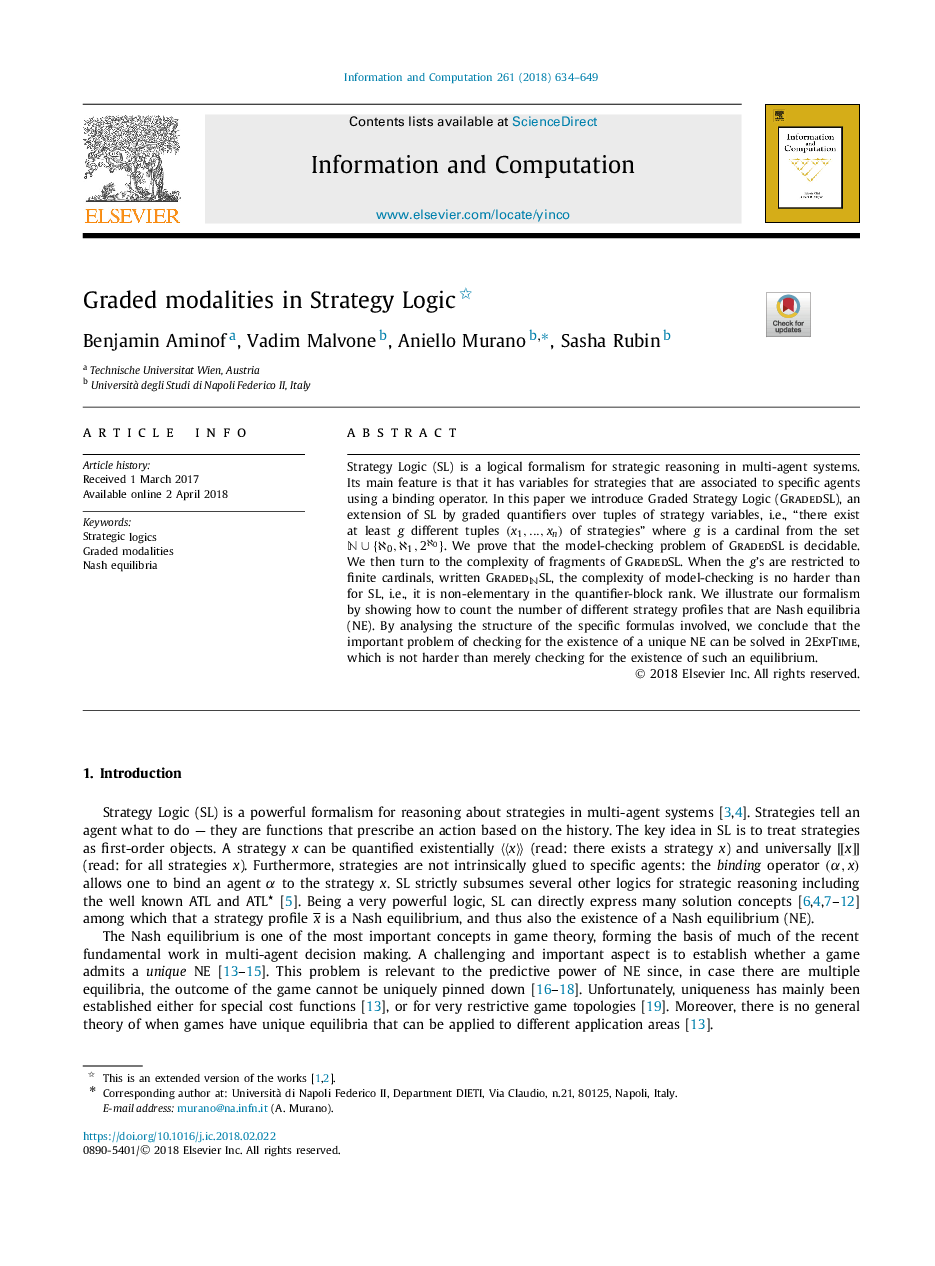| Article ID | Journal | Published Year | Pages | File Type |
|---|---|---|---|---|
| 6873757 | Information and Computation | 2018 | 16 Pages |
Abstract
Strategy Logic (SL) is a logical formalism for strategic reasoning in multi-agent systems. Its main feature is that it has variables for strategies that are associated to specific agents using a binding operator. In this paper we introduce Graded Strategy Logic (GradedSL), an extension of SL by graded quantifiers over tuples of strategy variables, i.e., “there exist at least g different tuples (x1,...,xn) of strategies” where g is a cardinal from the set Nâª{âµ0,âµ1,2âµ0}. We prove that the model-checking problem of GradedSL is decidable. We then turn to the complexity of fragments of GradedSL. When the g's are restricted to finite cardinals, written GradedNSL, the complexity of model-checking is no harder than for SL, i.e., it is non-elementary in the quantifier-block rank. We illustrate our formalism by showing how to count the number of different strategy profiles that are Nash equilibria (NE). By analysing the structure of the specific formulas involved, we conclude that the important problem of checking for the existence of a unique NE can be solved in 2ExpTime, which is not harder than merely checking for the existence of such an equilibrium.
Keywords
Related Topics
Physical Sciences and Engineering
Computer Science
Computational Theory and Mathematics
Authors
Benjamin Aminof, Vadim Malvone, Aniello Murano, Sasha Rubin,
